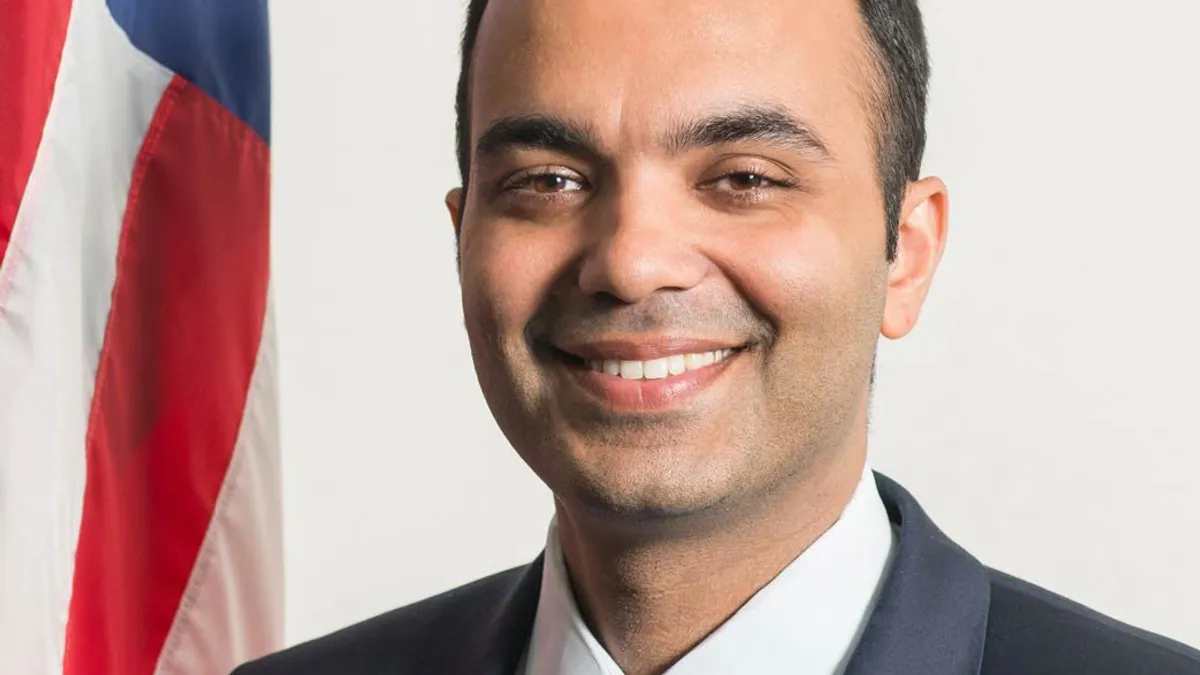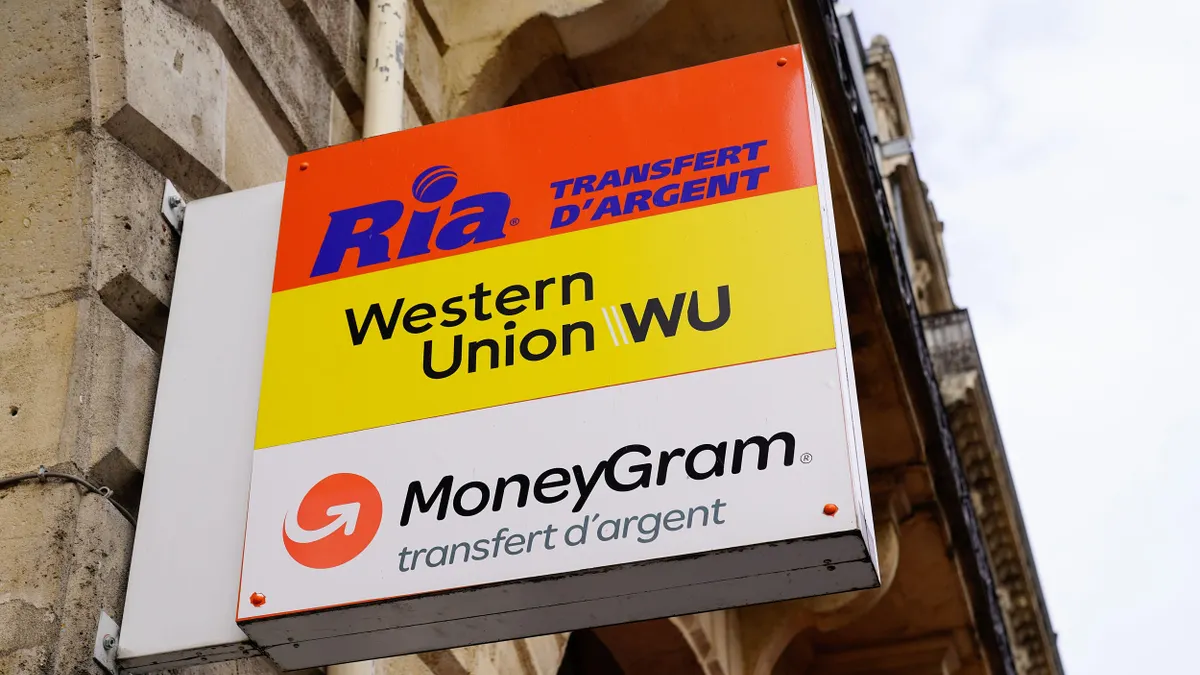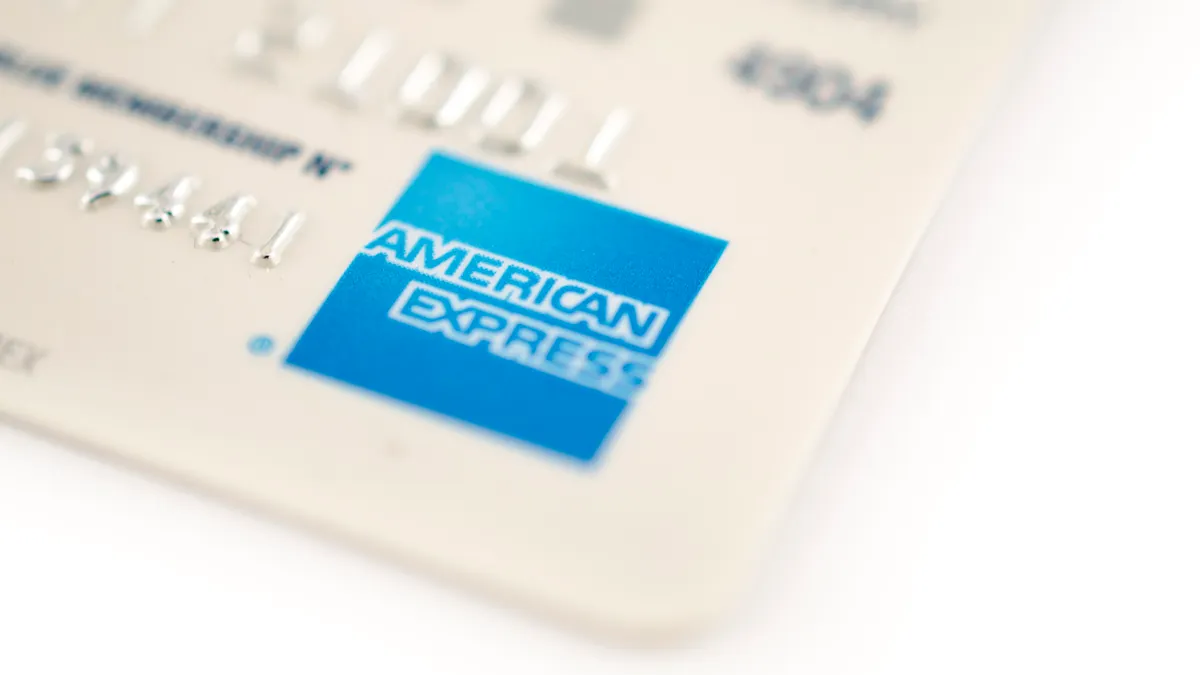A rule proposed Wednesday by the Consumer Financial Protection Bureau could reduce — to between $3 and $14 — the overdraft fees charged by banks with more than $10 billion in assets.
Under the proposed rule, banks would classify overdraft charges as extensions of credit, making them subject to the same consumer protections as credit cards under the Truth in Lending Act. That would force banks to disclose an annual percentage rate for such charges. Overdraft services — at a charge of roughly $35 per instance — now equate to an APR of about 16,000%, CFPB Director Rohit Chopra told reporters on a call Tuesday.
The proposed rule gives banks a choice: They could calculate an average of what it costs to cover an overdraft, show that math to the CFPB and charge overdrawing customers that break-even amount. Or banks could charge a benchmark amount suggested by the CFPB. The agency is suggesting $3, $6, $7 and $14 as potential amounts, based on data it has gleaned from various financial institutions. The CFPB is taking comments on those benchmarks.
"Today, we are proposing rules to close a longstanding loophole that allowed many large banks to transform overdraft into a massive junk fee harvesting machine,” Chopra said in a statement Wednesday.
The changes proposed Wednesday aim to further reduce the $9 billion per year the CFPB estimates banks count in revenue from overdraft fees — although that figure is down from $12.6 billion in 2019.
The turning point arguably came in 2021 and 2022, when banks such as Ally, Capital One and Citi eliminated overdraft fees, and Bank of America reduced them from $35 to $10. Months later, the Biden administration put what it has called “junk fees” in its sights. Banking trade groups have argued the president has unfairly lumped overdraft protection into that category.
“For too long, some banks have charged exorbitant overdraft fees — sometimes $30 or more — that often hit the most vulnerable Americans the hardest, all while banks pad their bottom lines. Banks call it a service — I call it exploitation,” President Joe Biden said in a statement Wednesday.
Consumer Bankers Association CEO Lindsey Johnson said the CFPB’s proposal fails to highlight banks’ innovation in developing alternatives to overdraft fees in the past several years.
“The Bureau is not only late to the party with this misguided proposal, but this one-size-fits-all approach from Washington threatens to undo years of progress while also freezing innovation and competition,” Johnson said in a Wednesday statement seen by Banking Dive.
The CBA launched a website this month meant to promote "the value of overdraft services, and why government mandates are misguided."
Johnson said the CFPB should pull Wednesday’s proposal, which she calls “just the latest in a myriad of unnecessary and costly regulations by this Administration that seems guided by political polling, rather than by sound policy created by what should be independent agencies.”
Overdraft fees account for roughly 2% of annual revenue in the banking industry and 4% of net income, the CBA said in its press release.
Another trade group, the American Bankers Association, has taken issue with the notion that overdraft policies are unclear to consumers.
“Overdraft protection fees are clearly disclosed, highly regulated and provide a service that an overwhelming majority of consumers find valuable,” Rob Nichols, the ABA’s CEO, said in December.
The ABA, Independent Community Bankers of America and America’s Credit Unions wrote Chopra this month, urging him to convene a small-business review panel to comment on the rule. The CFPB this week said it wouldn’t do that because the rule would only apply to large banks and not to credit unions. The 175 institutions it would affect account for two-thirds of overdraft fee revenue, the CFPB said. The St. Louis Fed, by contrast, put that proportion at 80%, by 2017 figures.
The CFPB’s public comment period closes April 1. A final rule is expected in October, but wouldn’t take effect until Oct. 1, 2025, because of TILA requirements.
The proposal — and its agency of origin — face a potential threat from another source: The Supreme Court is set to decide this year a case that calls into question the constitutionality of the CFPB’s funding structure. If the court agrees, the future of the bureau and its rules stand at risk.
Still, the proposal garnered praise from some consumer advocates.
“Overdraft fees are not so much a useful service as a lucrative profit center that’s largely underwritten by the most economically vulnerable consumers,” Carter Dougherty, a spokesperson for Americans for Financial Reform, said in a statement seen by The New York Times. “This reform is a step in getting banks back to providing good service and away from gotcha fees.”





















